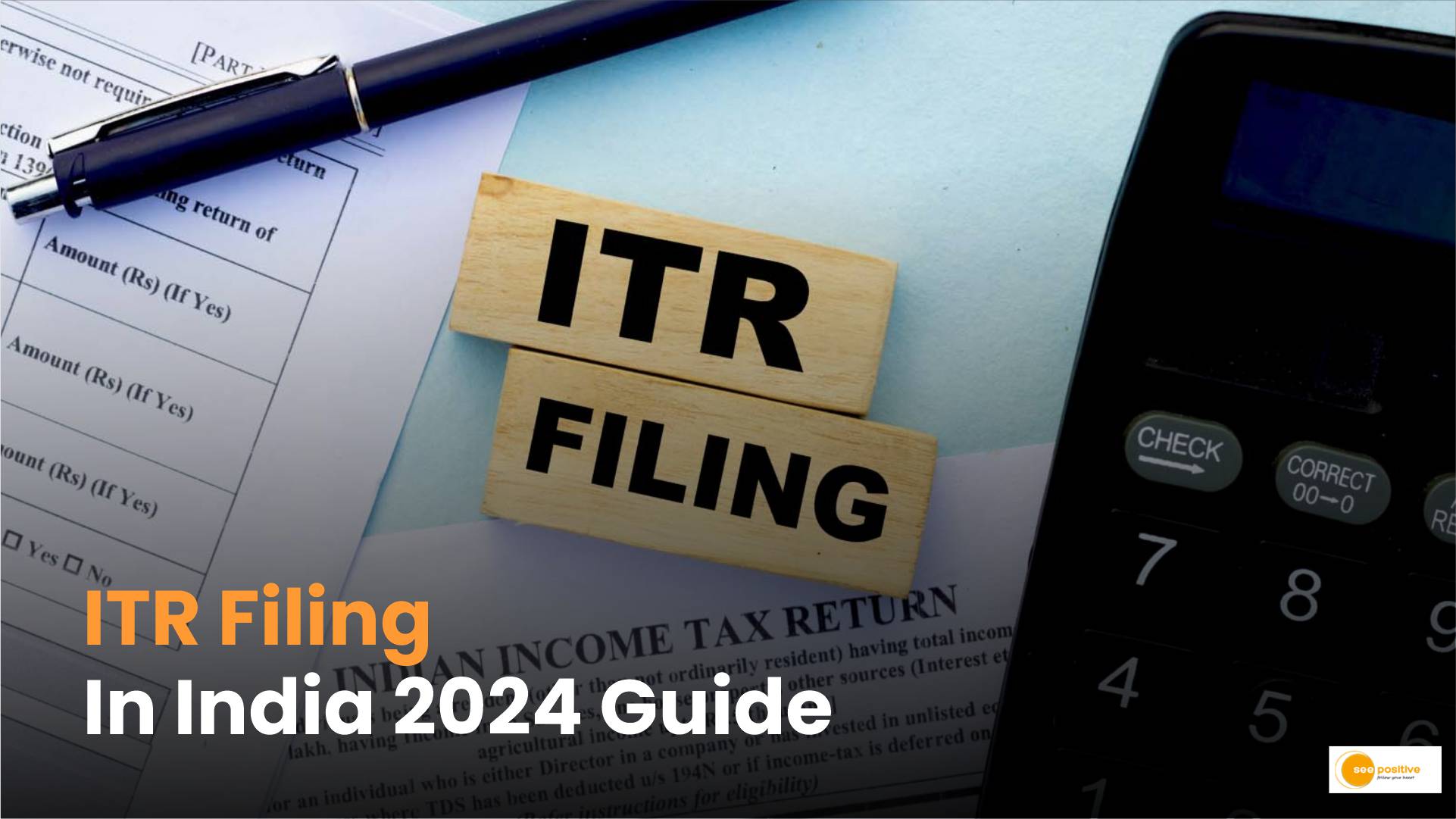Filing your Income Tax Return (ITR) in India can seem daunting, but with the right information, it can be a smooth and beneficial process. Here, we delve into everything you need to know about ITR filing in India for 2024, as per the latest government regulations.
Understanding ITR Filing: Why It Matters
Filing your ITR is a legal obligation for all Indian taxpayers exceeding a specific income threshold set by the Income Tax Department (ITD). However, it goes beyond mere compliance. Here are some key benefits of filing your ITR on time:
- Loan Processing: A filed ITR serves as a crucial document when applying for loans, such as mortgages or car loans. Lenders use ITRs to assess your financial health and creditworthiness.
- Visa Applications: Many countries require a filed ITR as proof of income when applying for visas.
- Tax Refunds: If you’ve paid more tax than you owe, filing an ITR ensures you receive a timely refund.
- Claiming Deductions and Exemptions: ITR allows you to claim deductions on various expenses, reducing your tax liability. These deductions can cover medical expenses, investments, education fees, home loan interest, and more.
- Building a Credit History: Regular ITR filing helps build a positive credit history, making it easier to secure loans and credit cards in the future.
ITR Filing Deadlines for 2024
The deadline for filing your ITR depends on your income category and the type of ITR form you choose:
- For Individuals with Salary Income Only (Up to Rs. 5 lakh): July 31st, 2024 (without penalty). December 31st, 2024 (with late filing penalty).
- For All Other Taxpayers: July 31st, 2024 (without penalty). December 31st, 2024 (with late filing penalty).
Choosing the Right ITR Form: A Guide for 2024
The ITD specifies various ITR forms for different taxpayer categories. Determining the correct form is crucial for accurate filing. Here’s a quick guide to common ITR forms in 2024:
- ITR 1 (Sahaj): For individuals with income solely from salary, pension, one house property, and interest income up to Rs. 5,000.
- ITR 2 (Sahaj): For individuals with income from various sources, including business or profession, capital gains, and foreign income.
- ITR 3: For individuals and Hindu Undivided Families (HUFs) with income from business or profession.
- ITR 4 (Sugam): For salaried individuals having business income up to Rs. 5 lakh and income from other sources up to Rs. 50,000.
- ITR 5: For individuals and companies being LLPs (Limited Liability Partnerships).
- ITR 6: For companies other than those being LLPs.
- ITR 7: For persons (including companies) required to furnish return under section 139(4)/139(5) (notice from ITD).
Documents Required for ITR Filing
Before filing your ITR, ensure you have all the necessary documents readily available. These may include:
- PAN Card (Permanent Account Number)
- Aadhaar Card (if linked with PAN)
- Form 16 (provided by your employer)
- Bank statements reflecting your income and tax deductions
- Investment proofs
(Continued from previous section)
How to file ITR online?
The Indian government encourages online ITR filing for its convenience and efficiency. Here’s a simplified guide to get you started:
- Visit the Income Tax e-filing website: https://www.incometax.gov.in/iec/foportal/.
- Login: Use your PAN Card and password to log in. If you’re a new user, register yourself.
- Select the ITR Form: Choose the appropriate ITR form based on your income category.
- Fill in the Details: Carefully enter your income details from various sources, deductions, and tax calculations.
- Verify and Submit: Thoroughly review the entered information for accuracy before submitting your ITR.
- E-verification: Verify your ITR electronically using Aadhaar or your bank account details.
When to Consider Professional Help
While online ITR filing is user-friendly, consulting a tax professional is advisable in certain situations, such as:
- Having complex income sources, including business or foreign income.
- Managing significant investments or claiming substantial deductions.
- Facing challenges with understanding tax laws or calculations.
Positive Takeaway
Embracing ITR Filing for a Financially Empowered Future- Filing your ITR is not just a legal obligation; it’s a step towards financial empowerment. It ensures timely loan approvals, visa applications, and potential tax refunds.
By following the information provided and utilizing online resources, you can navigate ITR filing efficiently and confidently. Remember, filing your ITR on time brings peace of mind and contributes to a financially secure future. So, take charge and embrace the benefits of responsible tax filing!


